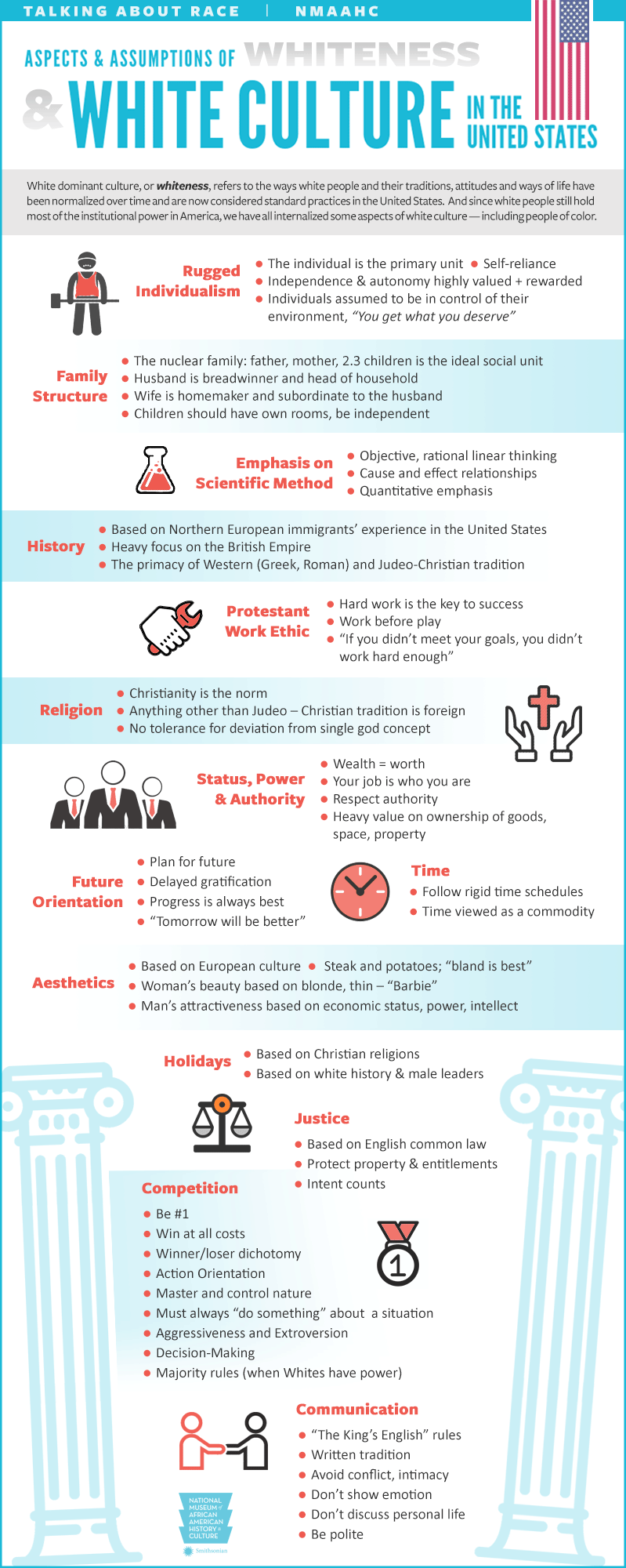This evening I logged onto Facebook and saw a bunch of my friends were commenting on the following infographic:

It was produced by the National Museum of African American History and Culture (NMAAHC) and has caused quite the stir (which is to say it has served its likely intended purpose). Some of my friends expressed agreement with it and some of my friends expressed disagreement with it. Not surprisingly there was a significant correlation (as in 100 percent) between a friend’s opinion and their expressed philosophical ideology.
However, even those who disagreed with it failed to address the primary problem with this infographic. The ultimate failure of this infographic isn’t that it claims that characteristics like rugged individualism, nuclear families, and Christianity are white or that it implies that those characteristics are undesirable. The ultimate failure of this infographic is the same failure of all commentary on “cultures,” “societies,” and “classes.” It’s listing “facts” about make believe.
Cultures, societies, classes and other attempts to treat unique individual as anything but don’t actually exist. They’re made up, as George Calin once said about rights, like the boogeyman. Listing facts about a culture, society, or class is no different than listing facts about elves. Doing so is often a fun exercise, but elves aren’t real (outside of Iceland, of course) so any “facts” you list about them are entirely made up.
With that said, I didn’t write this post to ruin your fun. Don’t let it stop you from arguing about this infographic. People argue passionately about make believe all the time. But do know that I’m laughing at you, not with you, because, as Max Stirner would say, you have a head full of ghosts and are badly in need of an exorcism.